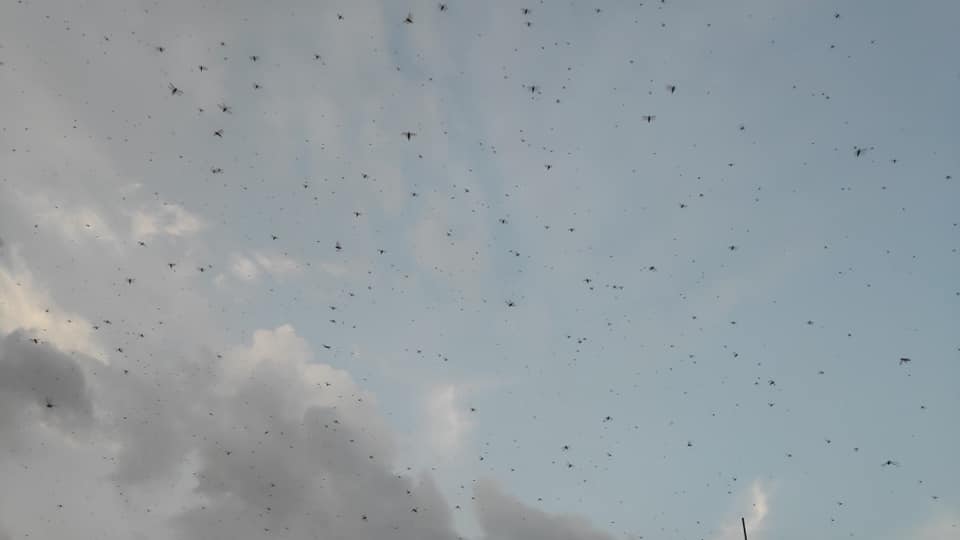0%

Locusts swarm spotted in Kathmandu. (Photo: Khabarhub)
KATHMANDU: The government has proposed to provide Rs 500 per kg to those who collect and bring those tiny vermin in a move to control the locust swarms that are a grave risk for agriculture produce.
Earlier, the local units across the country had fixed the price of locusts between Rs 20 to Rs 100. The government decided to hike the purchasing price for locusts in a bid to motivate and enthuse the locust catchers and collectors. These insets could be used as the possible feed for chicken and fish.
The locust swarms reportedly entered the country on June 27 and were spotted in various parts of the country within the next few days. The herbivorous insects often flow in a swarm, each swarm consisting of millions, according to experts.
The insect that is related to grasshopper family weights 1.98 to 2 grams on average.
The Plant Quarantine and Pesticides Management Centre under the Ministry of Agriculture and Livestock Development put the proposal for the same. The Ministry had formed a task force to launch a study on the entry of locusts in Nepal and find means and ways to control them. The same task force put forward the proposal informed Centre’s Chief Sahadev Prasad Humagain.
Humagain explained, “A tiny band of locusts has entered Nepal and spread across the country. Given the small number of locusts entering Nepal, there has not been significant damage to the crops yet.”
He further elaborated, “The Ministry floated to provide Rs 500 per kg for locusts aimed at encouraging the catchers and collectors as well as to control whatever the number of locusts that were moving in and around the country.” The pesticides used to control locusts could harm human beings and the natural environment. Hence, the Centre discourages the use of such harmful chemicals.
The Centre has also suggested the Ministry to ready the necessary tools to catch locusts using the local resources and ingenious methods. Locusts have spread across 54 of the 77 districts in the country so far. RSS